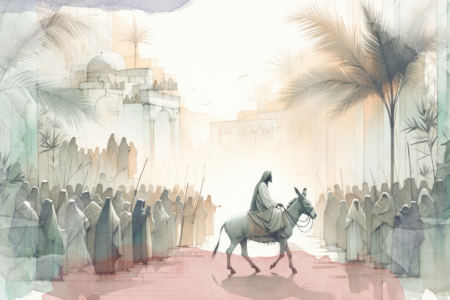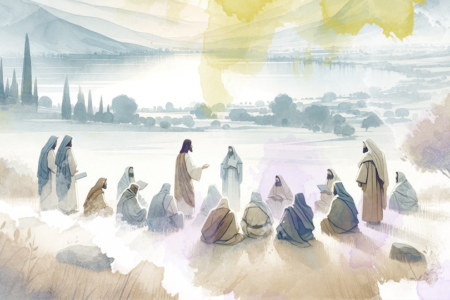The Life, Times And Message Of Isaiah The Prophet PART XXIX
ISAIAH, CHAPTERS 36-39
A Historical Supplement
Chapters 36-39 are a historical supplement to the prophecies of chapters 1-35, and record some of the important events which took place during the reign of king Hezekiah and in which Isaiah himself played a prominent role.
The same events, with minor modifications and the omission of Hezekiah’s prayer, are also recorded in II Kings 18:13-20 and chapter 19.
The supplement completes the first part of Isaiah and serves as a background and a bridge to the prophecies of the second part of his book (chapters 40-66)•
Chapters 36-37 describe Sennacherib’s unsuccessful attempt to capture Jerusalem, and his assassination.
Chapter 38 records Hezekiah’s sickness, his prayer and recovery.
Chapter 39 tells about the embassy which Merodach-Baladan, the prince of Babylon, sent to Hezekiah, and Hezekiah’s folly in boastfully flaunting his wealth before the foreign visitors. The chapter closes with the ominous prediction that the descendants of Hezekiah will be carried off into Babylonian captivity.
Among Old Testament scholars there is an unresolved dispute over which of the two records (Isaiah 36-39 and II Kings 18:13-20:19) is the original.
The references in II Chronicles 26:22 and 32:32 to Isaiah’s historiographical activities and the prophet’s habit of interspersing his oracles (Isaiah 7:1-6; 8:1-4; 20:1; 22:15) with historical data, in addition to considerations of style, favor Isaiah as the author of chapters 36-39, on which the record of II Kings was probably based.
CHAPTER 36
1 And it came to pass in the fourteenth year of King Hezekiah, that Sennacherib, King of Assyria, went up against all the fortified cities of Judah.
2 And the King of Assyria sent Rabshakeh (the chief officer) from Lachish to Jerusalem, to King Hezekiah, with a great army. And he stood by the conduit of the upper pool in the highway of the Fuller’s Field.
3 And Eliakim, the son of Hilkiah, the master of the (royal) household, and Shebna the scribe, and Joah, the son of Asaph, the recorder, went out to him.
4 And the chief officer said to them: Go say to Hezekiah, Thus says the great king, the king of Assyria, What kind of confidence is it in which thou trustest?
5 I say: This is just vain talk. Counsel and strength, these are necessary for war. Now on whom dost thou rely that thou hast rebelled against me?
6 Behold, thou hast put thy trust upon a broken reed, upon Egypt, upon which if a man lean, it will enter into his hand and pierce it; so is Pharaoh, king of Egypt, to all who trust in him.
7 And if thou wilt say to me: We trust in the LORD our God, is He not the One whose altars Hezekiah has removed and has said to Judah and Jerusalem, “only at this altar shall you worship?”
8 So now, do make a wager with my lord, the king of Assyria, and I will give thee two thousand horses, if you wilt provide the horsemen to ride upon them.
9 How then canst thou repulse even the least of my lord’s servants? And yet thou trustest in Egypt for chariots and horsemen!
10 And did I now come up against this land to destroy it without the LORD, Who said to me, “Go up against this land and destroy it?”
11 Then said Eliakim and Shebna and Joah to Rabshakeh: Please speak to thy servants in Aramaic, for we understand it, but do not speak to us in Judean, in the earshot of the folk who sit on the wall.
12 Then said Rabshakeh: Is it to thy lord and to thee that my lord sent me to speak these words? Or is it rather to the men who sit on the wall, who will eat their dung and drink their urine together with you?
13 So Rabshakeh stood and shouted aloud in Judean, and said: Listen to the words of the great king, the king of Assyria!
14 Thus says the king, Let not Hezekiah misguide you, for he will not be able to deliver you.
15 And let not Hezekiah make you trust in the LORD saying, “The LORD will surely deliver us. This city shall not be surrendered into the hand of the king of Assyria.”
16 Do not listen to Hezekiah, for thus says the king of Assyria: Make a favorable agreement with me, and come out to me and let every man eat of his vine and every man of his fig tree and drink the water from his cistern.
17 Until I come and take you away into a land which is like your land, a land of grain and wine, a land of bread and vineyards.
18 Beware lest Hezekiah mislead you by saying, “The Lord will deliver us.” Have the gods of the nations, any one of them, delivered his land from the hand of the king of Assyria?
19 Where are the gods of Hamath, of Arpad? Where are the gods of Sepharvaim?” And have they delivered Samaria from my hand?
20 Who is there among all the gods of those lands that delivered their land from my hand, so that the LORD should deliver Jerusalem from my hand?
21 But they held their peace and answered him not a word. For the king’s command was: “Answer him not.”
22 The came Eliakim, the son of Hilkiah, the master of the household, and Shebna the scribe, and Joah, the recorder, to Hezekiah, with their garments torn, and they reported to him the words of the chief officer.
Comment:
1-3 After invading Judea in 701 B.C. and capturing many fortified cities, including the important fortress of Lachish, the Assyrian king sent Rabshakeh, that is “the chief cupbearer” or “chief officer,” with a large army, demanding that Hezekiah surrender Jerusalem. The Assyrian general was met by a delegation of high Judean officials.
4-20 The Assyrian general’s harangue is a classic example of psychological warfare as it was practiced in ancient times. His address is brutal, insulting and designed to intimidate the listeners.
He argues that Hezekiah’s confidence in Egypt is in vain. It is no better than a broken reed, which can only hurt the one who leans upon it. Neither is the Judeans’ faith in Jehovah justified, because, according to the Assyrian general, they have forfeited His favor by removing His altars from the country shrines, and insisted that He be worshipped only at the temple in Jerusalem. The Assyrian general ridicules the ability of Hezekiah to withstand the great might of Assyria, and offers to supply two thousand horses, if Hezekiah will find two thousand riders (v.9). The Rabshakeh further insists that the Assyrian invasion of Jerusalem was ordered by Jehovah Himself (v.10).
The request of Hezekiah’s representatives to the Assyrian not to speak in Judean (in Hebrew), but in Aramaic, the lingua franca of the Middle East in those days, is rudely rejected by the Assyrian general, who continues his harangue in Hebrew. He calls upon the inhabitants of Jerusalem to surrender, in exchange for the privilege of peacefully enjoying the fruits of their labors for a brief time, until they will be later resettled in another land similar to their own.
The Rabshakeh offers to make a favorable agreement with the Judeans to this effect. The Hebrew word for “agreement” in verse 16 is “berachah” (a blessing), indicating the beneficial nature of the agreement.
The Assyrian general’s effort to force the Judeans into surrender culminates in blasphemy when he compares Jehovah with the gods of the various conquered nations, such as Hamath and Arpad (previously mentioned in 10:9), and Samaria, which fell to the Assyrians in 722 B.C.
21-22 The people of Jerusalem listened to the Rabshakeh, but at the command of Hezekiah did not answer a word.
After this the royal delegation tore their clothing, in the traditional manner of mourners, and reported the message of the Rabshakeh to Hezekiah.
Note
1 The resettling of conquered nations in distant parts of the empire was a common practice of the Assyrians and later of the Babylonians.
It was a divine act of justice that about one century later, the Assyrians themselves became the victims of this policy, when they were forced to go into Babylonian captivity. They later were permitted in 539 B.C. to return to their own country by Cyrus the Great Emancipator of captive nations.
ISAIAH, CHAPTER 37
King Hezekiah dismayed, sends a delegation to Isaiah; Sennacherib’s insolence. Hezekiah prays and God answers. The calamity of Sennacherib and his dismal end.
1 And so it came to pass that when king Hezekiah heard it, he tore his garments and covered himself with sackcloth and went into the house of the LORD.
2 And he sent Eliakim, the master of the household, and Shebna the scribe, and the elders of the priests, covered with sackcloth, to Isaiah the son of Amoz.
3 And they said to him, thus says Hezekiah, this day is a day of trouble, of rebuke and blasphemy, for the children are come to the point of birth and there is no strength to bring them forth.
4 Perhaps the LORD thy God will hear the words of the chief officer, whom his master, the king of Assyria, has sent to taunt the living God and He will punish the words, which the LORD thy God has heard, when thou wilt make intercession for the remnant, which is left.
5 So the servants of king Hezekiah came to Isaiah.
6 And Isaiah said to them: Thus shall you say to your master: Thus says the LORD! Do not be afraid of the words which thou hast heard with which the lads of the king of Assyria have insulted me.
7 Behold, I will put a spirit in him and he will hear a rumor and he will return to his country, and I will cause him to fall by the sword in his own land.
8 And the Rabshakeh went back and found the king of Assyria fighting against Libnah; for he had heard that he departed from Lachish.
9 And he heard say about Tirhakah, the king of Ethiopia, “he has come to fight thee.” When he heard this he sent messengers to Hezekiah saying:
10 Thus shall you say to Hezekiah, the king of Judah, Let not thy God in whom thou trustest, deceive you, saying, Jerusalem shall not be surrendered into the hand of the king Assyria.
11 Behold thou hast heard what the kings of Assyria have done to all the countries, destroying them completely, and wilt thou be delivered?
12 Have the gods of those nations delivered them whom my fathers have destroyed, Gozan, Haran, Rezeph and the sons of Eden, who were in Telassar?
13 Where is the king of Hamath and the king of Arpad, and the king of the city of Sepharvaim, Hena and Ivah?
14 So Hezekiah took the letter from the hand of the messengers and read it. And he went up to the house of the LORD; and Hezekiah spread it before the LORD.
15 And Hezekiah prayed before the LORD, saying:
16 O LORD of hosts, God of Israel, enthroned upon the Cherubim: Thou art the only God, of all the kingdoms of the earth. Thou hast made heaven and earth.
17 Incline, O LORD, thine ear and hear.
Open, O LORD, thine eyes and see.
Hear the words of Sennacherib,
Who has sent to taunt the living God!
18 It is true that the kings of Assyria have devastated all the countries and their lands.
19 And have cast their gods into the fire, for they were no gods, but the work of men’s hands, wood and stone, therefore they have destroyed them.
20 Now, therefore, O LORD our God, save us from his hand and let all the kingdoms of the earth know that Thou alone art the LORD.
21 Then sent Isaiah the son of Amoz to Hezekiah saying: So says the LORD, the God of Israel to Whom thou hast prayed to me about Sennacherib, the king of Assyria:
22 This is the word which God has spoken concerning him:
She despises thee, she scorns thee,
The virgin daughter of Zion,
She shakes her head behind thee,
The daughter of Jerusalem.
23 Whom hast thou taunted and blasphemed?
And against whom hast thou raised thy voice
and hast lifted up thine eyes?
Against the Holy One of Israel!
24 By thy servants hast thou taunted the Lord
and hast said: With my many chariots
have I climbed the top of mountains,
The utmost parts of the Lebanon,
And I have felled its tall cedars,
Its choicest cypresses,
I have come to the farthest reaches
of its forest garden.
25 I have dug (wells) and drunk,
And have dried up with the sole of my feet
all the rivers of Egypt.
26 Hast thou not heard?
From way back it is I who planned it,
From ancient days have I designed it,
Now I brought it to pass
That fortified cities should be laid waste,
Into heaps of ruins,
27 And their inhabitants were helpless,
They were dismayed and put to shame,
They were as the grass of the fields,
As the green herbs, as the grass on the roof,
As the grainfield before it is green.
28 Thy sitting down, thy going out and coming in,
And also thy raging against me I know.
29 Because thy raging against me,
And thy roar has come to my ear,
Therefore will I put my hook in thy nose,
And my muzzle into thy lips,
And I will make thee turn back,
By the way by which thou hast come.
30 And this shall be for a sign to thee:
This year men will eat that which is self-grown,
In the second year that which is self-sown,
But in the third year sow and reap,
Plant vineyards and eat their fruit.
31 And the surviving remnant of the house of Judah
shall again take root below and bear fruit above.
32 For a remnant shall go forth from Jerusalem,
And out of Mount Zion they that shall escape.
The zeal of the LORD of hosts shall perform this.
33 Therefore, thus says the LORD to the king of Assyria:
He shall not come to this city,
Nor shoot an arrow against it,
Neither will it be assaulted with shield,
Nor will a mound be cast up against it.
34 By the way he came, by the same way shall he go back,
But into this city will he not enter:
Thus says the LORD.
35 And I will shield this city to save it, for my own sake,
And for the sake of my servant David.
36 And the angel of the LORD went forth and struck down in the Assyrian camp one hundred and eighty-five thousand. And when they rose up in the morning, behold they were all dead corpses.
37 Then Sennachrib king of Assyria departed and went forth and returned and resided in Nineveh.
38 And as he was worshipping in the house of his god Nisroch, that his sons Adrammelech and Sarezer struck him down with the sword and escaped into the land of Ararat. And his son Esarhaddon reigned in his stead. A.T.
Comment:
This chapter relates one of the most dramatic episodes in the long history of Israel, and more specifically of Judah. The miraculous intervention of God which frustrated Sennacherib’s attempt to capture Jerusalem has for one more century spared the Judeans the misery of exile and bondage. Next to the deliverance from Egypt, Sennacherib’s calamity stands as a landmark of divine watchfulness over the destiny of Israel.
1-5 Dismayed by the insistence of the Assyrian general that Jerusalem surrender to his master, Hezekiah sends a prominent delegation of the highest state officials and priests to Isaiah asking him to intercede with the LORD for deliverance (v. 2). The composition of the delegation shows the high respect in which Isaiah was held by the king and the court, as a man who stood close to God.
3 For the children are come to birth (Hebrew: the matrice), and their is no strength to bring them forth
This may have been a popular saying which expressed extreme perplexity and inability to cope with a situation.
6-7 The prophet’s answer is reassuring: The Lord will force Sennacherib to turn back by the same way in which he came.
6 . . . . the lads of the king of Assyria
This is an exact translation of the Hebrew, which the KJV renders: “the servants of the king of Assyria.” It is a contemptuous reference to the Assyrian messengers.
7 Behold I will put a spirit in him—a spirit of confusion
Verses 8-9 explain the circumstances which caused “a spirit of confusion” in Sennacherib’s counsel. He heard a rumor or report (“shemuah”—the same word occurs in 53:1), that Tirhakah, the Ethiopian ruler of the Nile Valley empire was about to launch a campaign against him. Tirhakah, like his predecessors, sought to incite the subject nations to revolt against their Assyrian masters (see chapter 18:1-3).
10-13 Sennacherib’s second message to Hezekiah demanding the surrender of Jerusalem, was basically the same as the first, with the added blasphemy: “Let not thy God deceive thee.” (v. 10).
14-21 Hezekiah’s prayer.
14 And Hezekiah spread it (the letter) before the LORD
A symbolic act to demonstrate visually the enormity of the hubris hurled by Sennacherib in the face of the living God.
16 O LORD of hosts, God of Israel . . .
As if to make amends for the Assyrian’s blasphemy, Hezekiah exalts his God by calling Him by His rightful name and by extolling His character. He is the Lord of hosts, the God of the whole universe, and also the God of Israel. He is the rightful King of all the kingdoms and the creator of heaven and earth.
Enthroned upon the cherubim (or sitting upon) . . . . (v. 16).
A reference to the two figures of the cherubim over the ark in the Temple (Psalm 18:10; 80:1).
18 It is true that the kings of Assyria
Hezekiah admits that the boasting of Sennacherib, that he has destroyed all the gods and their countries, is true, but these gods were merely man-made idols and not God.
20 Now therefore, O LORD our God
Now is the time for the true God to save Jerusalem from the blasphemous Assyrian and thus prove that He alone is God.
21-35 God answers Hezekiah through his servant Isaiah. The answer comes in the form of a magnificent taunt song against Sennacherib.
22 She despises thee, she scorns thee. . . .
Jerusalem is called “the virgin daughter of Zion”
As long as God is on her side she is inviolable and virgin, and may scoff and defy all her adversaries.
The prophet sees in vision the hastily retreating Assyrian king, while the daughter of Jerusalem “shakes her head” behind him, in contemptuous pity.
23 Whom has thou taunted and blasphemed. . . . And against whom has thou raised thy voice?
In three indignant questions Isaiah stresses the unspeakable horror of blaspheming “the Holy One of Israel.”
All the vaunted exploits of the Assyrians were only possible because the Lord has used them as His instrument of wrath and punishment (compare Isaiah 10:5).
28 I know . . . .
The Lord is fully aware of all the actions and thoughts of Sennacherib, and now the time of retribution has come.
29 Therefore will I put my hook in thy nose . . . .
For many generations the Assyrians had perpetrated acts of unspeakable cruelty upon their victims, literally dragging many captive peoples into Mesopotamia, with hooks in their noses and muzzles in their lips. Now the Assyrian’s turn has come. “The spoiler” will at last be despoiled.
30 This shall be for a sign to thee
Isaiah now directs God’s message to Hezekiah.
“The sign” will consist of the events which will soon transpire. For two years the people will subsist on that which is “self grown” and “self sown,” but in the third year there will be regular sowing and reaping, planting and eating.
33-35 Jehovah promises to protect Jerusalem. The city will not experience the horrors of a long, drawn-out siege, with all its attending miseries. Incidentally, verse 33 provides us with a glimpse of the methods of siege practiced by the Assyrians and by their contemporaries, and long after them.
For my own sake and for the sake of my servant David (v. 35).
The Lord’s own honor as well as his faithfulness to “his servant David are at stake.
36 And the angel of the LORD went forth . . . .
In a few brief words the prophet-historian relates the enormous calamity which befell the army of Sennacherib as a result of divine intervention. Just like in the days of Pharaoh, “the angel of the Lord” slew the firstborn of Egypt, so now he slew Sennacherib’s army.
In the morning they were all dead corpses. . . . (v. 36)
The redundancy of the words “dead corpses” expresses the completeness of the Assyrian disaster.
38 They escaped into the land of Ararat, which is Armenia. Esarhaddon who was engaged in a military campaign, upon hearing that his brothers murdered their father, marched on Nineveh and defeated them.
A period of about 20 years passed between Sennacherib’s retreat from Jerusalem and his assassination (701-681 B.C.).







